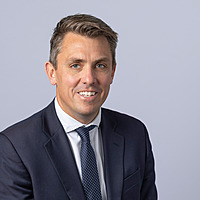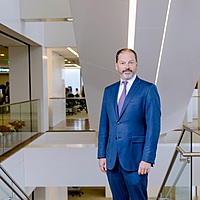Start early, think ahead, shake hands with your portfolio – advice that has shaped Australia’s leading fund managers
Advice is everywhere these days. Some of it is good, some of it is rubbish – I’m talking to you, social media influencers.
Good advice is typically borne from experience, as opposed to theory, and it is more often than not shared with the receiver by someone who cares about that individual and is mindful of the experience they are having.
Advice from a stranger is often just that, strange. Advice from a mentor, family member, friend, or colleague is valuable. I recently asked a handful of fund managers for the one piece of investing advice that has stayed with them throughout their journey as a fund manager.
This piece of advice could have been given to them by a mentor, or it could be from a life lesson that their parents taught them that they have applied to the way they invest money.
Wherever it came from, I was hoping to unearth the formative piece of advice that they have held onto over the journey.
A huge thanks to all of the fund managers who participated. Late last week I brought you responses shared by Emma Fisher, Katie Hudson, and Adam Chandler. They can be viewed in the wire below.
Today, in the second installment of the series, we hear from Jun Bei Liu, Oscar Oberg, and Rob Mead.
Jun Bei Liu - Tribeca Investment Partners
%20(7).png)
"Start early and stay patient: Time is your greatest asset"
Investing, especially for young people, can be an exciting adventure in securing our financial future. The golden rule to keep in mind is simple: kickstart your investment journey early and hold onto your patience every step of the way. Why is this golden rule so significant?
Leverage the Power of Compounding: Time is like a secret superpower in the world of investing. It's the idea that your money earns interest not just on your initial investment but also on the interest you've already earned. It's like a money-making machine that grows over time. Starting early is like giving that machine a head start, allowing your investments to snowball and grow significantly.
Embrace Your Risk-Taking Side: When you're young, you usually have a higher appetite for risk because you have more time on your side. This means you can opt for investments with the potential for higher returns, even if they come with a bit of rollercoaster-like ups and downs. In the long run, this can translate to substantial gains.
Learn and Evolve: Think of investing as a lifelong learning journey. By beginning early, you gift yourself the chance to learn from your experiences – both the wins and the setbacks. These experiences are like stepping stones that help you refine your investment strategies, make informed decisions, and become a savvy and confident investor.
Bounce Back from Mistakes: We're all human, and we all make mistakes, especially when navigating something as complex as investing. But when you start early, you have the luxury of time on your side. If you stumble along the way, you have the space to recover and make up for any losses. These setbacks can turn into valuable lessons that bolster your long-term financial success.
Stay Adaptable: Life has a way of throwing curveballs, and your financial goals and circumstances may change over time. Being a young investor gives you the flexibility to adjust your investment strategy as needed. You can take calculated risks and make changes that align with your evolving objectives.
In essence, the advice to "Start Early and Stay Patient: Time Is Your Greatest Asset" reflects the idea that your early investments are the foundation for a secure financial future. By launching your investment journey as soon as possible and embracing a patient, long-term outlook, you unlock the potential for your money to work harder for you.
You can ride the wave of your higher risk tolerance, learn and adapt as you go, and ultimately achieve substantial financial growth and security over time. So, remember, every financial journey starts with a single step – start early, stay patient, and watch your investments flourish.
Oscar Oberg - Wilson Asset Management
%20(8).png)
One of the best pieces of advice that was given to me when I started at Wilson Asset Management was to always think
18 to 24 months in advance.
Particularly in small-cap investing, sectors and companies can rapidly go in and out of favour, so I always ask myself, “Where do I see this stock in one or two years’ time, is there a catalyst that could drive the share price higher?”
At Wilson Asset Management, we are always looking for a catalyst that can create value for our shareholders.
Some stocks can run out of momentum, and the valuations can often be unsustainable and effectively become too high relative to the earnings growth so it's important to continually assess the potential downside, even when a stock is winning. As valuations climb, keeping a forward-looking perspective can help you identify when a stock has reached its peak, and there is no harm in selling to take profits.
On the other hand, when sectors are out of favour, such as what we are seeing with retail and healthcare stocks at the moment, consider the 18-to-24-month horizon. If we think the environment will normalise and improve, then that may be a catalyst to buy, which can provide great investment opportunities.
Rob Mead - PIMCO
%20(9).png)
Shake hands with your portfolio every morning
The investment toolkit of a successful investor never stops expanding, whether it be navigating through bouts of market-stress, managing liquidity, identifying your personal biases or sharpening your investment disciplines.
One such investment discipline I learned from one of the PIMCO Founders was to shake hands with your portfolios every morning.
For the past 20 years, for the first hour of every day, somewhere between 7 am and 8:30 am (when the bond market opens), I am present on the trade floor with my team, reviewing new information, assessing the implications, sharing interpretations and then drilling down into the potential impact on every individual line-item in my actual portfolios.
This investment discipline reduces the possibility of inertia poisoning investment decision-making, which is the arch-enemy of any portfolio manager. Regularly testing and re-testing the assumptions driving your investment thesis ensures that new information that challenges portfolio positions is fully assessed.
Textbooks claim that markets are efficient, but the reality is they take a long time to synthesize new information, and are influenced by ingrained investor biases. Identifying these biases and acting thoughtfully and systematically helps develop the elusive edge that portfolio managers strive for.
Have your say
What is the best piece of investing advice ever imparted to you?
Feel free to share in the comments section below.
2 topics
3 contributors mentioned




